The market is paying close attention to the State Bank's moves amid speculation that the agency will continue to cut its key interest rate.
Interest rates are trending down.
In many conferences, the State Bank of Vietnam (SBV) affirmed that it will continue to closely monitor market developments to adjust policies flexibly. The goal is to ensure liquidity for banks, maintain the stability of the financial system and support businesses and people to access capital at reasonable costs.
In the view of experts, Vietnam's economy still has a long way to go to achieve its 2025 growth target. This requires stronger stimulus measures, along with drastic decisions in both fiscal and monetary policies.
However, the current macro economy is facing many challenges, especially inflation. The consumer price index (CPI) in January 2025 increased by 3.63%, and in the first two months of the year, it increased by 3.27%. International organizations such as the IMF, WB, and AMRO all commented that Vietnam's room for monetary policy easing is very limited, and at the same time recommended taking advantage of fiscal policy to support growth.
However, the State Bank of Vietnam (SBV) has signaled a loosening of monetary policy through strong moves in both the interbank and primary markets. In mid-February, the SBV reduced the interest rate on treasury bills and has now stopped issuing treasury bills. This shows that the regulatory agency wants to bring interbank interest rates to very low levels, or allow interest rates to fluctuate within a wider range of 0-4% instead of tightly controlling them as before.
According to Mr. Tran Ngoc Bau, General Director of WiGroup Financial Economic Data Company, this is a proactive step of the SBV even when the exchange rate and interest rate decisions of the US Federal Reserve (Fed) are unclear. In market 1, the SBV has also asked banks to lower deposit interest rates to stabilize the market, while reducing operating costs to create conditions to reduce lending interest rates.
Mr. Tran Ngoc Bau believes that the State Bank will certainly lower interest rates, but the speed and method of implementation will depend on foreign capital flows. He predicts that the interest rate reduction process will take place according to a roadmap: first affecting the interest rate of treasury bills, then the OMO interest rate, then adjusting the ceiling interest rate on deposits with terms of less than 6 months, and finally the refinancing interest rate, overnight capital financing interest rate, etc.
Commenting on this, Mr. Nguyen Hoang Linh, Research Director at Vietcombank Fund Management Company (VCBF), said that the interest rate pass-through from market 2 to market 1 in Vietnam is still limited and does not have an immediate impact. However, when conditions are suitable and external risks are reduced, the SBV can completely continue to reduce operating interest rates.
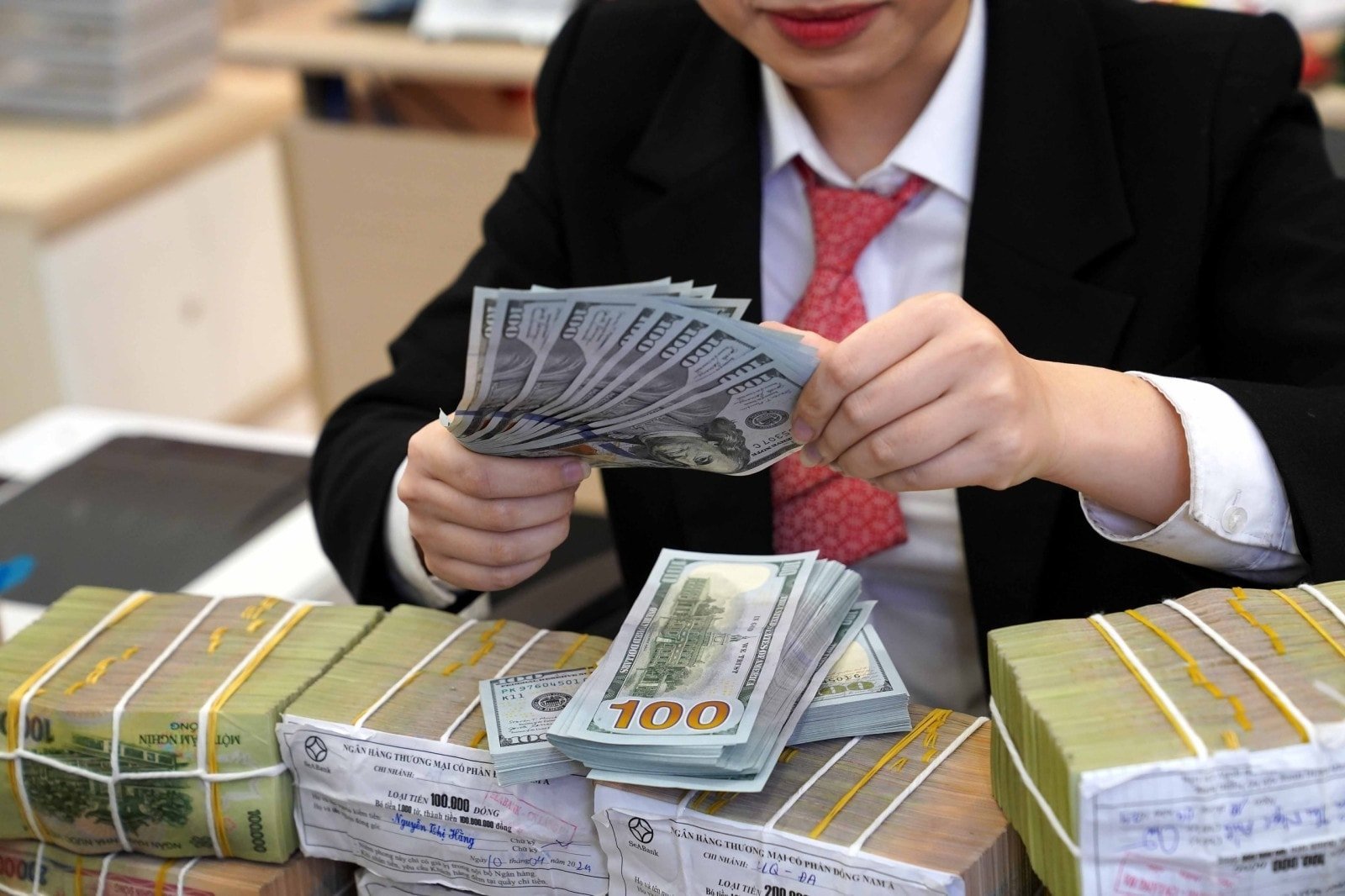
Exchange rate concerns persist
In the context of falling interest rates, the exchange rate has shown signs of increasing in recent days. According to analysts, the exchange rate is one of the important factors in the basket of goods and services used to calculate the consumer price index (CPI). Over the past 2.5 months, the exchange rate has generally remained stable, however, since the beginning of last week, there have been significant fluctuations.
On March 22, the State Bank of Vietnam (SBV) listed the central exchange rate at 24,813 VND/USD – a record high. With a margin of +/-5%, the exchange rate at commercial banks fluctuated from 23,572 to 26,054 VND/USD. Along with that, the USD price at commercial banks also increased. Vietcombank, BIDV , and VietinBank simultaneously adjusted the buying price to 25,400 VND/USD and the selling price to 25,760 VND/USD, an increase of about 50 VND compared to the beginning of last week.
The continuous increase in the USD/VND exchange rate has attracted the attention of the market, especially when the USD in the international market is showing a slight downward trend. Mr. Nguyen The Minh, Director of individual customer analysis at Yuanta Vietnam Securities Company, said that the recent increase in the exchange rate by the State Bank is mainly to proactively respond to macro fluctuations from the international market.
Regarding external factors, although the USD is weakening, it is still maintained at a high level, creating some pressure on the exchange rate. In addition, domestic demand for foreign currency is increasing as businesses increase imports of production materials. In addition, in February, the State Treasury made three purchases totaling 500 million USD from commercial banks, contributing to tightening the supply of foreign currency and increasing pressure on the exchange rate.
According to Pinetree Securities, the SBV had to raise the selling price of USD to a record 26,003 VND/USD, showing strong intervention to reduce pressure on foreign exchange reserves. In 2024, the SBV sold billions of USD to stabilize the foreign exchange market.
The Vietnam Economic Report Q1/2025 by UOB Bank stated that with the economy continuing to grow strongly in 2024 and into 2025, along with the US Federal Reserve (Fed) tending to keep policy interest rates unchanged, the SBV is not under pressure to loosen policy in the short term. However, risks from global trade tensions and the strengthening of the USD could become new concerns. According to UOB, the SBV needs to closely monitor the pressures of VND depreciation.
Experts also said that maintaining low interest rates to stimulate cash flow to support economic growth means accepting a certain level of exchange rate risk. However, if the exchange rate fluctuates strongly, Vietnam's trade activities will be affected, in the context of an economy that is already affected by global trade conflicts.
In the context of the international economy still facing many uncertainties, monetary policy management needs to continue to be flexible and highly predictable. The State Bank of Vietnam is facing a dual challenge: controlling inflation, loosening monetary policy, and at the same time stabilizing exchange rates to protect export advantages and maintain an attractive investment environment for foreign investors.
Source: https://baodaknong.vn/lai-suat-dieu-hanh-co-tiep-tuc-giam-de-thuc-day-tang-truong-kinh-te-247106.html



![[Photo] General Secretary To Lam chairs a working session with the Central Internal Affairs Commission](https://vphoto.vietnam.vn/thumb/1200x675/vietnam/resource/IMAGE/2025/5/22/3b7790f499da45b2803d8ae253207ef1)
![[Photo] Prime Minister Pham Minh Chinh chairs the Government's special meeting on law-making in May](https://vphoto.vietnam.vn/thumb/1200x675/vietnam/resource/IMAGE/2025/5/22/1c880aae96fd4e0894abc47a46fe19ba)

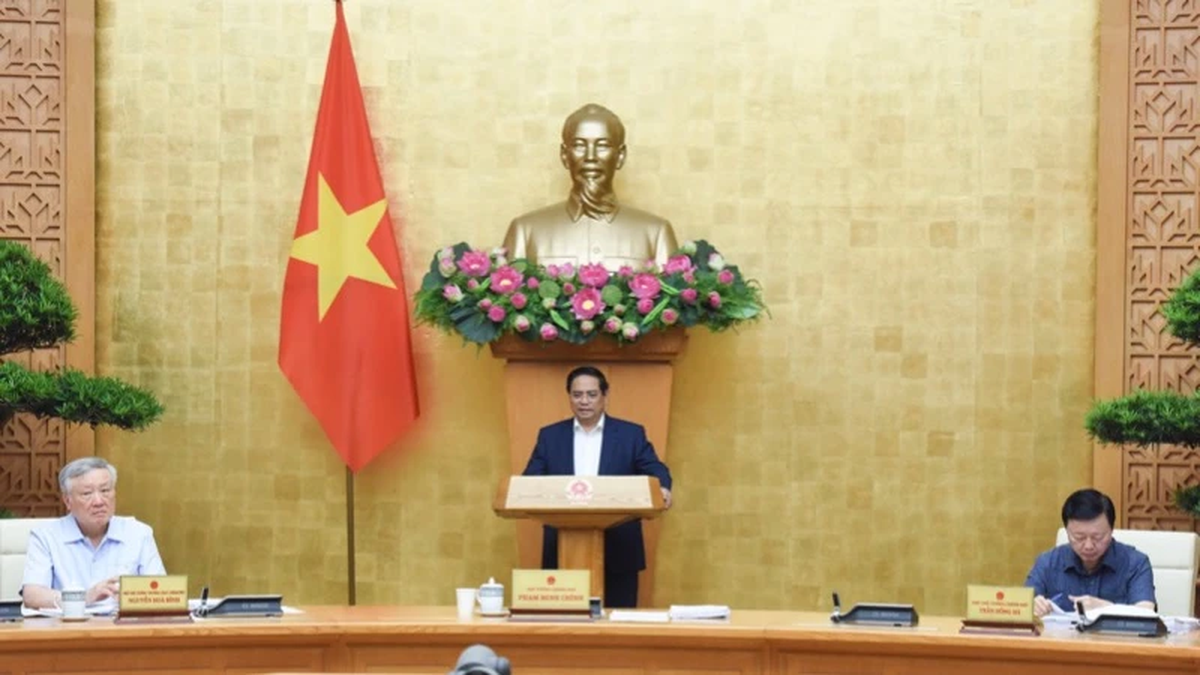


























































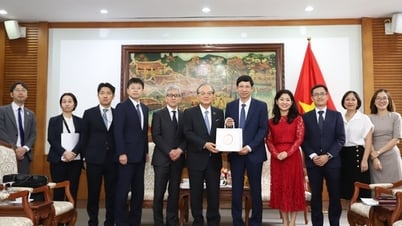



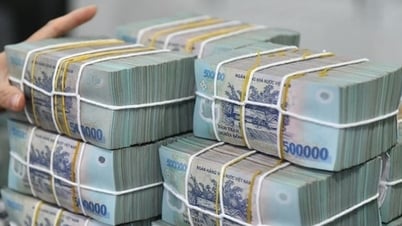



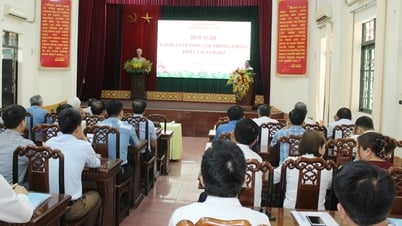









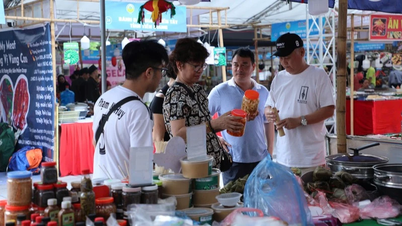




Comment (0)